Low-Tox Luggage at a Glance:
- Top Pick for Hardside Wheeled Suitcases: Monos
- Top Picks for Duffle Bags & Weekenders: Lo & Sons (organic cotton option) and Terra Thread
- Top Pick for Kids’ Luggage: Bixbee
I recently went on an international trip and really needed a new suitcase. I knew a lot of the hard plastic suitcases contain endocrine-disrupting chemicals like BPA and phthalates, and I wanted to try and find the least toxic one I could.
As I started browsing stores like Target and T.J. Maxx, I was disappointed to find that I could not find ONE suitcase that didn’t come with a Prop 65 label warning me about how the luggage contained several different phthalates.
So then I started looking online and emailing a bunch of brands. And for this article, I’ve organized my findings, giving you my top choices for the least toxic luggage (and the brands that didn’t make the cut), plus more info about the different materials and chemicals to look out for.
Table of Contents
- Why Does Luggage Have a Prop 65 Warning?
- What is the Best Material for a Suitcase?
- Polycarbonate (PC)
- Aluminum
- Acrylonitrile Butadiene Styrene (ABS)
- Polypropylene (PP)
- Soft Fabrics
- What About Recycled Materials?
- Main Chemicals to Look Out for in Luggage
- How to Choose the Best Suitcase for You
- Where Can You Buy Chemical-Free Luggage?
- Our Top Picks for Non-Toxic Luggage Without Prop 65 Labels
- Monos (Best for Hardside Suitcases)
- Bixbee (Best for Kids)
- Lo & Sons (Organic Duffle Bags/Weekenders)
- Terra Thread (Organic Duffle Bags/Weekenders)
- Our Second Choices
- How Other Luggage Brands Stack Up
This article contains affiliate links, which means we may earn commission if you choose to make a purchase. As always, all recommendations are honest.
Featured Image Credit: Monos
Why Does Luggage Have a Prop 65 Warning?
The most common reason luggage contains a Prop 65 label is because they contain phthalates and/or bisphenols (BPA/BPS).
The Prop 65 warning is a label that the state of California legally requires a company put on a product if it contains certain toxic chemicals over a specified amount. The Prop 65 chemical list contains both naturally-occurring (i.e. lead) and synthetic (i.e. BPA) chemicals that are known to cause cancer, birth defects, or other reproductive harm.
If a product exposes the consumer to at least one chemical on the Prop 65 list that exceeds the “safe” amount daily exposure amount, then a warning label is required. Technically, the Prop 65 label is only required for California residents, but since most companies sell and ship to California, you’ll find this label on products online and in stores throughout the U.S.
There are currently six different phthalates, three different bisphenols (including BPA and BPS), and several different PFAS on the Prop 65 list. We’ll get into more detail about these chemicals in a minute.
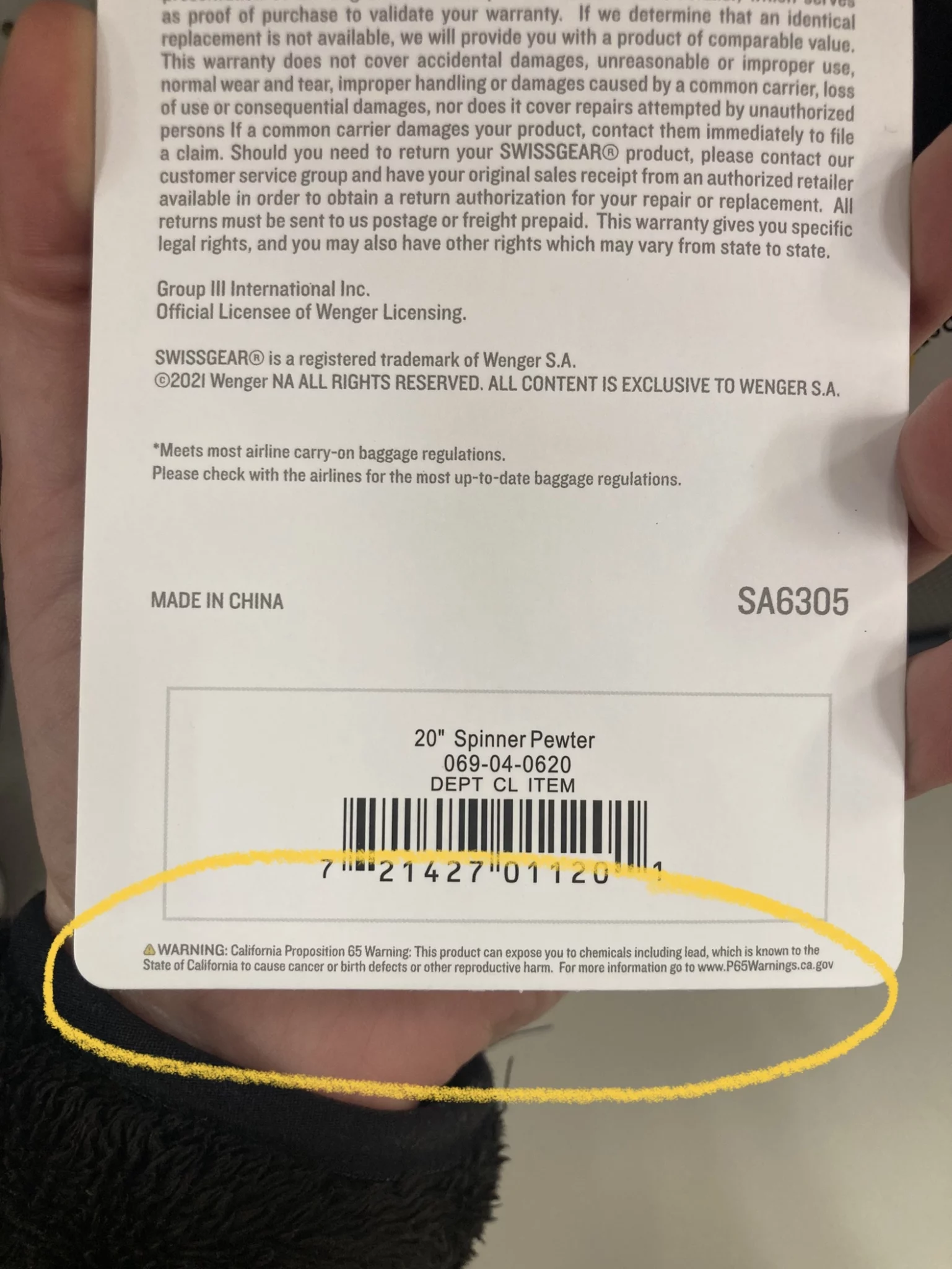


Should You Worry About a Prop 65 Warning?
Some people argue that we should basically disregard the Prop 65 warning label because it’s become so ubiquitous that it’s actually lost its meaning. And I do get that argument. Sometimes a Prop 65 label is almost impossible to avoid (like with certain tech products, for example). And if you start looking for it, you’ll see the label all over the place (especially if you’re in California).
But I still think it’s a good tool to use, especially for certain product categories. In the case of luggage, I wanted to do my best to find a luggage that was free (or almost free) from endocrine disrupting chemicals, and looking for a Prop 65 label was the best way to do that.
What is the Best Material for a Suitcase?
The most commonly used materials for luggage are:
Polycarbonate (PC)
This is the most popular material for hard plastic suitcases. It’s durable yet lightweight, making it a great option for travel.
Polycarbonate is also the type of plastic that’s most likely to contain bisphenols (such as BPA) and/or phthalates. These chemicals are often used to make plastic harder and more durable, while still maintaining a level of flexibility.
These days, there are alternative ways to make polycarbonate durable without those chemicals. And while those alternatives still may not be perfect, I personally will still take them over their more toxic counterparts when I have the choice.
Aluminum
Some brands such as Away and TUMI offer aluminum suitcase collections. Some may like the idea of aluminum as a good option that uses a lot less plastic (synthetics are still used for certain parts of the suitcase, like the inner lining). Because there is less plastic involved, you definitely don’t have to worry as much about things like BPA and phthalates. Aluminum is also much more easily recycled as well.
Aluminum also tends to be more durable over the long term. A good aluminum suitcase is likely to last you decades. (However, it’s important to note that it does get dinged and dented more easily than plastic, so just be aware of that before you buy.)
But there are some cons to aluminum suitcases as well—mainly, that they tend to be a big heavier and more expensive compared to plastic. Plus, even though you don’t really have to worry about BPA and phthalates, aluminum is more likely to contain trace amounts of lead.
Acrylonitrile Butadiene Styrene (ABS)
ABS is another material you’ll find hard suitcases to be made out of, but we don’t recommend it. Not only does it contain styrene (a likely carcinogen) and is produced using HFCs (potent greenhouse gases), but it’s also significantly less durable compared to the other types of suitcase materials. The only plus side to ABS is that it can be more affordable.
You’ll also find some suitcase that are made from a PC/ABS blend, which is an attempt to combine the affordability of ABS with the durability of PC.
Polypropylene (PP)
Polypropylene is used much less often in luggage, but you’ll come across it sometimes. Polypropylene is considered one of the “safer” types of plastic and is less likely to contain things like BPA.
It tends to be a bit lighter and more affordable compared to polycarbonate and aluminum, but it can also be less durable.
Soft Fabrics
For soft luggage as well as duffle bags and weekenders, you’ll find a variety of materials like polyester, nylon, and cotton (both organic and conventional).
Nylon and polyester are not as bad as some other synthetics, but they can still contain toxic chemicals (for example, they’ve recently found BPA in socks and athletic clothing). Natural materials like conventional and organic cotton are more likely to be safer (we’ve recommended a few organic cotton duffle bags below), but you’ve also got to consider the waterproof factor.
If you need a waterproof bag, synthetics like polyester and nylon can be manufactured to be waterproof without toxic additives like PFAS. Fabrics like cotton are not waterproof and therefore would need to have something added to it to make it water-resistant.
(If you want to buy an untreated organic cotton bag and add your own water-resistant treatment, check out this Natural Waterproofing Wax from Otter Wax.)
What About Recycled Materials?
Many luggage companies make suitcases out of more eco-conscious materials like recycled plastic bottles. Just like with the other kinds of materials, there are pros and cons here. On one hand, increasing the circularity of some of these plastics and keeping them out of our landfills and oceans is definitely a plus!
However, it’s much harder (practically impossible) to ensure recycled plastics are free from BPA or phthalates. Even if a manufacturer doesn’t add any of these chemicals in the process of making their luggage, there’s really no way of knowing for sure what chemicals were in the original plastic products that are being recycled (unless they’re tested, which almost no one does). Using virgin plastics give manufactures more control over what’s actually in those plastics.
Main Chemicals to Look Out for in Luggage
Phthalates & Bisphenols
Phthalates and bisphenols (like BPA and BPS) are two families of chemicals that come with similar problems. They are both endocrine-disrupting chemicals (EDCs), which mean they can mess with the body’s proper hormone function and lead to things like infertility and cancer.
Phthalates and bisphenols are added to plastics both to make them more durable as well as more flexible. Certain types of plastic (like polycarbonate) are more likely than others (like polypropylene) to contain these chemicals, but technically they can be added to any kind of plastic. These chemicals can leach out of the plastic over time. (Heat, abrasive activity, and time in general can increase the rate of leaching.)
As mentioned above, several different kinds of phthalates and bisphenols are on the Prop 65 list, which is why looking for luggage without a Prop 65 label can help you find luggage that’s less likely to contain these toxic chemicals. Not all phthalates and bisphenols are included on the Prop 65 list, so it can’t give you 100% assurance that a product is free from any of the chemicals in these families. But it’s the best tool we have when it comes to luggage.
PFAS
PFAS, a.k.a. “forever chemicals,” are often added to products to make them water-resistant. PFAS are associated with a whole host of negative health concerns, from cancer to fertility problems to birth defects and more. Companies are not legally required to list these chemicals on labels, so it’s really difficult to know whether or not they’re there.
Just like with phthalates and bisphenols, there are a few PFAS chemicals (including PFOS and PFOA) on the Prop 65 list, but there are thousands of other kinds of PFAS in this family that are not included at this time.
Intentionally-Added vs. Contaminated Chemicals
Another important thing to note is that sometimes these chemicals make their way into products unintentionally. As referenced above, products made with recycled plastics can contain BPA even if the manufacturer didn’t add it. Unintentional PFAS can also be found in products from the manufacturing process (PFAS are used on the machinery and then they basically wipe off the machines and onto the product).
This is not ideal, but there’s not really anything we can do about it as consumers at this time. The only way to get unintentional chemicals out of products is to put more widespread legislation in place that bans certain chemicals and requires more stringent testing.
The only kinda good thing is that when chemicals like PFAS exist in products unintentionally, it’s at a much lower amount than when they are added intentionally. That’s why I still look for products made without any intentionally added chemicals.
How to Choose the Best Suitcase for You
Of course, there are other things you’ll want to consider outside of materials as you shop for your suitcase. Here are some things to think about:
- Do you want/need a hard or soft suitcase?
- Durability: Do you do a lot of traveling? Do you need your suitcase to last a long time?
- Size: Do you need a large checked-bag, a small/medium carry-on, or a full set?
- Locks or no locks? If security is important to you, many of the brands below come with TSA-approved locks.
- Budget: The less-toxic suitcases below do tend to be a bit more expensive than some of the ones you’ll find on Amazon or at the big box stores, but they also tend to be made from more high-quality materials and will probably last you longer. (As an important side note: if you can’t afford a low-tox suitcase, try not to stress out too much. Considering that you’re not eating your luggage or putting it directly onto your skin, I don’t think it’s as high on the priority list compared to some other kinds of products, such as skincare products or drinking water. Just do what you can and don’t worry if you can’t do things *perfectly*! None of us can, anyway!)
- Trials and warranties: Another good thing about some of the brands below is that they offer various kinds of trials and warranties, which can also help justify the higher price. So be sure to check out those details before you buy!
Where Can You Buy Chemical-Free Luggage?
First, “chemical-free” luggage doesn’t really exist. A) Everything is technically a chemical, and B) Pretty much all suitcases contain some kind of plastic. BUT I get what you mean! You want to try and find the suitcase which doesn’t come with a Prop 65 warning label and doesn’t have any added PFAS, BPA (or other bisphenols), or phthalates.
We emailed all of the below brands to ask about their materials, additives/treatments, whether or not they contain any intentionally-added bisphenols or phthalates, and whether or not their products are actually tested for those materials (spoiler: most are not). We also asked if any of their products come with Prop 65 labels.
A few brands were willing to answer our questions transparently, some replied with unhelpful non-answers, and several never replied at all. Additionally, we scoured each brand’s website, product pages, and FAQs for any more info.
It’s worth noting that we didn’t test any of these luggage brands ourselves. We are essentially trusting the Prop 65 compliance process and taking these brands at their word. And while that may not be ideal, we’re going for the best option we have at the moment! (Testing things is very costly, but we hope to do more of that in the future!)
Below, we’ve organized our findings and sorted the low-tox luggage into our top picks, second-best choices, and then the brands we don’t really recommend.
Our Top Picks for Non-Toxic Luggage Without Prop 65 Labels
Monos (Best for Hardside Suitcases)


Primary Material: Polycarbonate & aluminum
Prop 65 Label? No
BPA/BPS? No
PFAS? No
Types of Luggage: Hard checked and carry-on suitcases, soft duffles and backpacks
Price Range: $272-$445
Monos is a sustainably-minded brand based in Canada with a philosophy of mindful travel, timeless design, and quality over quantity. They’re also a Climate Neutral Certified brand and member of 1% For the Planet.
They offer a lot of information on their website about materials and processes—for example, how they use TPE instead of PVC for certain parts of the suitcases. (TPE is still plastic, but it’s better than PVC.) They also visit their factories frequently and maintain a couple of certifications to ensure ethical manufacturing.
The Monos customer service team was the most helpful out of all of the brands we reached out to. They replied in a timely manner every time and answered our questions clearly (it didn’t seem like they were trying to skirt around actually answering the questions like several of the other brands did!).
They told us that they do not use PFAS chemicals in their products and that none of their products come with a Prop 65 label.
When it comes to practicality, aesthetics, and price, Monos can definitely compete with the other trendy luggage brands on the market such as Away. Plus, they offer a 100-day trial, a limited lifetime warranty, and free shipping, too.
One thing to note is that the interior fabric of Monos’ suitcases uses antimicrobial treatment, which is not ideal. This seems to be very common practice for luggage manufacturers. You may want to factor this into your decision in deciding which option is the best for you.
All things considered, Monos is actually the brand I ended up choosing for my own new suitcase, and you can check out my full review here!
Bixbee (Best for Kids)


Primary Material: Polyester
Prop 65? No
BPA/Bisphenols? No
PFAS? No
Types of Luggage: Suitcases and duffle bags
Price Range: $50-$115 (suitcases); $20-$34 (duffles)
Bixbee is one of the brands featured in our non-toxic backpacks guide. They’re a great option for kids, in part because they offer fun colors and styles (dinosaurs! unicorns! glitter!).
They have a collection of 2-wheel and 4-wheel suitcases along with duffle bags of various sizes. They’re free from toxins like PVC, phthalates, and lead (and they are actually tested to make sure they are compliant). They also explicitly state that their bags and suitcases are not treated with any water-resistant chemicals. Their 600-denier polyester fabric is inherently water resistant and durable.
Bixbee is also a B Corp brand with a social mission. With every purchase, they donate school supplies to children through their non-profit partnerships.
Lo & Sons (Organic Duffle Bags/Weekenders)
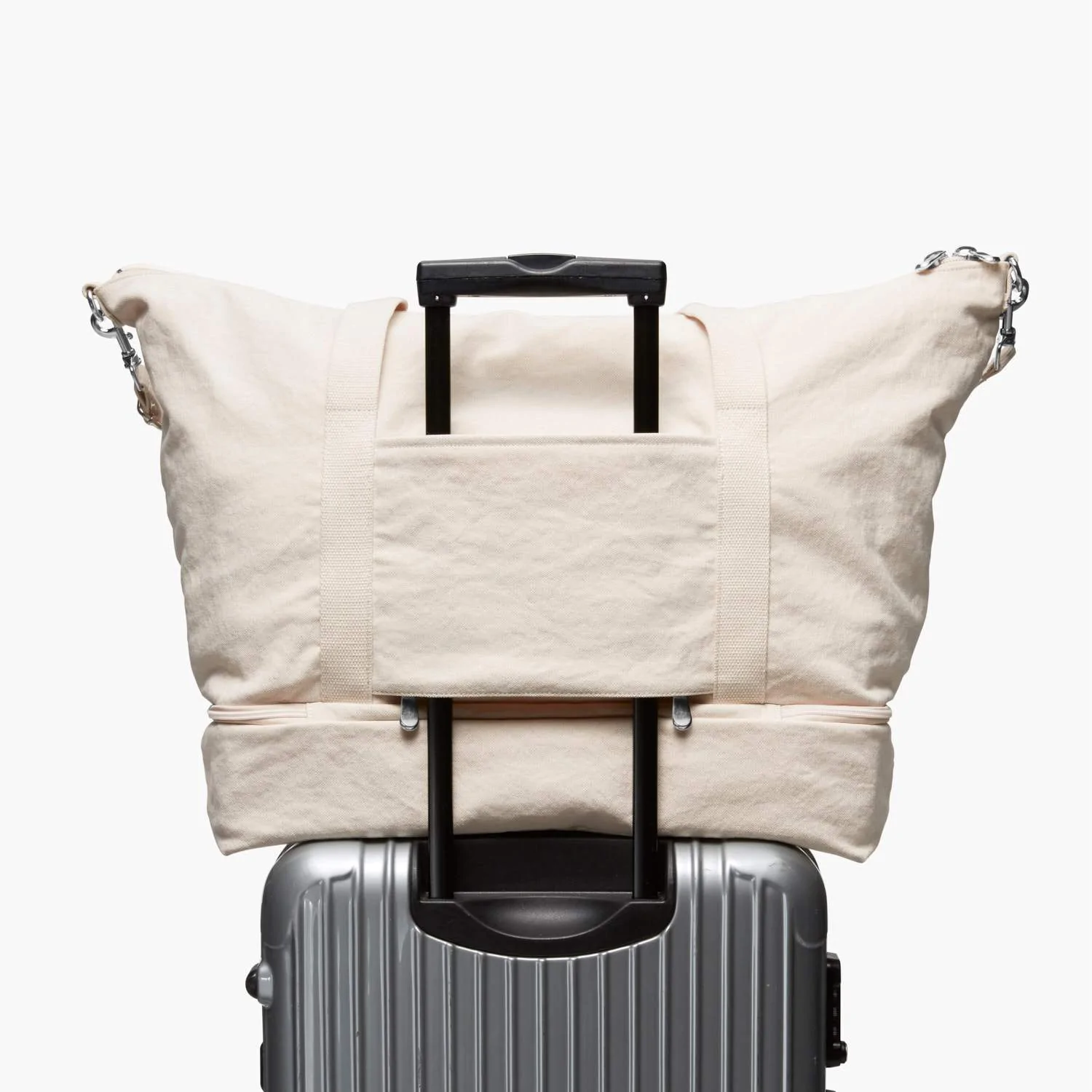

Primary Material: Organic cotton (they also have other options made from various synthetic fabrics)
Prop 65? No
BPA/Bisphenols? No
PFAS? No
Types of Luggage: Weekenders and duffle bags, along with other types and sizes of bags
Price Range: $205-$225
It’s much easier to find a non-toxic / organic duffle bag or weekender than it is to find a hardside suitcase. Lo & Sons is a great option for practical duffle bags, carry-ons, and weekender totes.
Our top recommendation is their Catalina Deluxe, which is available in organic/recycled cotton. It comes in various gender-neutral color options, including black, cream, navy, green, gray, and brown.
The Catalina Deluxe has several great design aspects, including a separate bottom section for things like shoes or dirty clothes and an exterior sleeve to hook the bag over your suitcase handle.
When we reached out, Lo & Sons told us:
After bringing your question with the product team, they have confirmed that our products are tested for safety against U.S. and E.U. consumer product standards, which includes lead safety and phthalate safety. In the case, it does not contain any PU (Polyurethane), BPA or PVC. And we do not use a Prop 65 label.
Terra Thread (Organic Duffle Bags/Weekenders)
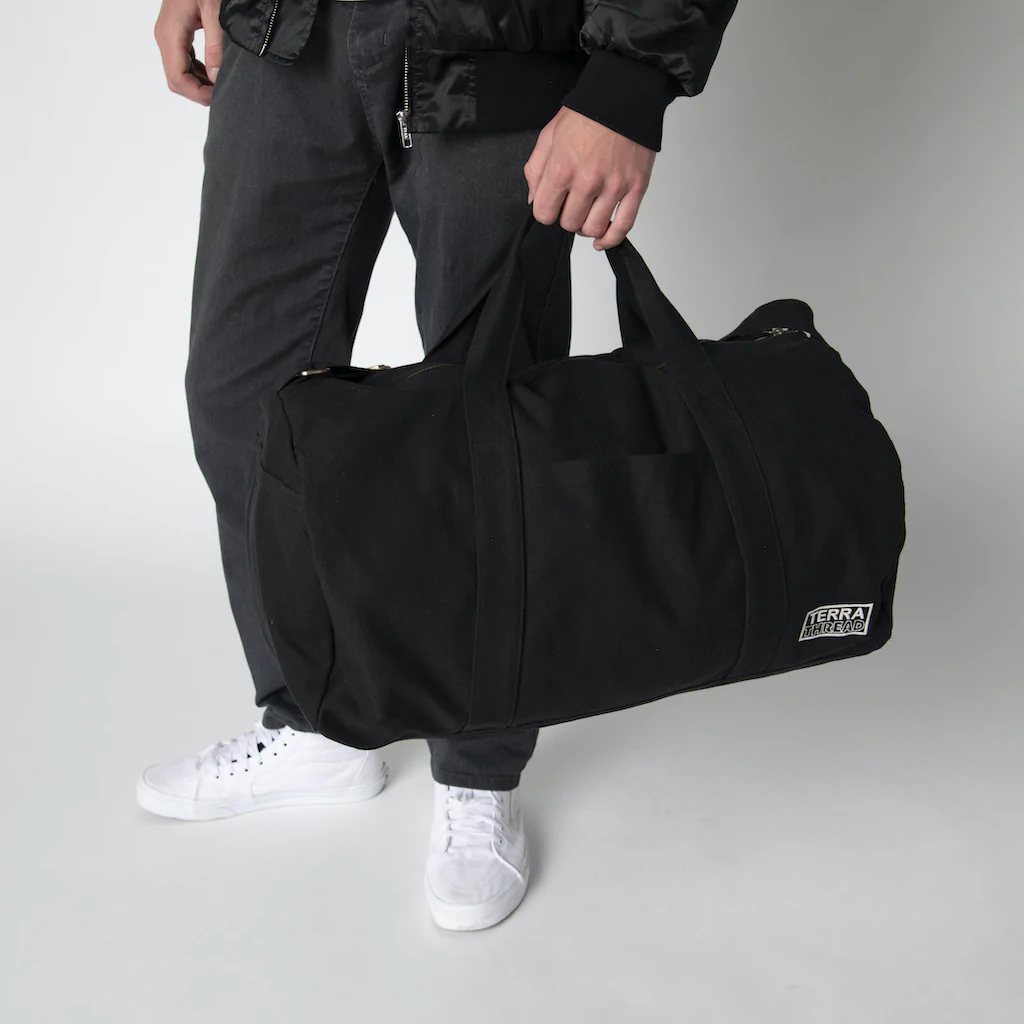

Primary Material: Organic cotton
Prop 65? No
BPA/Bisphenols? No
PFAS? No
Types of Luggage: Soft duffle bags (large and small)
Price Range: $60-$70
Terra Thread is another great option for gender-neutral duffle bags that come in several different colors (like black, brown, green, and “dune”).
These bags are made out of 14-oz heavy duty Fairtrade organic cotton canvas with a 56L capacity (or 32L for the smaller gym bag). The zippers are made with polyester (as of right now), but all of their metal pieces are lead-free.
These bags come with several different third-party certifications, including GOTS organic, Fair Trade (for both the cotton and the factory), and Climate Neutral. They are not water-resistant at this time, but the Terra Thread team says they’re on the hunt for a way to make their bags water resistant in a way that’s actually eco-friendly and non-toxic.
Plus, each purchase also supports Feeding America’s campaign to end hunger by donating meals to kids and families in need.
A few other brands that have organic cotton duffle bags and weekenders include FEED, Anchal, Cuyana, and Nobodinoz (for kids).
Our Second Choices
Below are some *okay* options for luggage—they have some pros and some cons. We’ve given our reasoning for why each brand didn’t make our “best of” list below.
Away
Primary Material: Polycarbonate or aluminum
Prop 65? Yes
BPA/Bisphenols? Unclear
PFAS? Unclear
Types of Luggage: Hard checked and carry-on suitcases, along with other kinds of bags like duffles, backpacks, and smaller bags
Price Range: $275-$745 (hard suitcases)
Away’s luggage is super practical, lightweight, and looks nice. But unfortunately, when we emailed them, they gave us multiple non-answers.
Here was the answer to our first email:
Our polycarbonate luggage is made of 100% Polycarbonate, produced in China, Taiwan and Indonesia. The State of California recently added many plastics and plastic components (including BPA, which is often used to manufacture polycarbonate) to the Prop 65 list at certain exposure levels. Our polycarbonate luggage is compliant with Prop 65.
While I’m glad they are compliant with Prop 65 rules, that only means that they include the Prop 65 label on products if they are required to; it doesn’t say anything about whether or not any of their products actually have that label. They also completely ignored the question about PFAS.
So, we replied to ask for more clarity and they said:
Due to implementing system updates to improve our overall customer experience, it’s taking us a bit longer than usual to respond. Prop 65 contains a list of more than 900 banned substances, which includes some PFAs, that we use as a guideline for consumer safety.
Another non-answer.
This is disapointing because it means we can’t really recommend Away as a good non-toxic luggage brand at this time.
When I dug into their FAQs, I did find a little bit more info that gave me a couple clues about potential PFAS:
Water-resistant, but not 100% waterproof! Canvas, nylon and leather are naturally water-resistant, but are not treated to be waterproof. The same applies to all of our products—suitcases and personal items alike: while we wouldn’t recommend taking them swimming, you’ll be totally fine if you ever find yourself caught in the rain!
To me, this hints at the fact that they probably don’t add a PFAS water-resistant treatment, but again, it would be nice if we could get an explicit answer from them!
Update: We heard from a reader that Away finally informed her that although their luggage is REACH compliant (a European standard), it does in fact require a Prop 65 warning.
BUT, the one good thing about Away is that they offer an aluminum collection. Aluminum is probably not going to contain bisphenols or phthalates, so we feel more confident recommending one of the suitcases from that collection.
At the end of the day, Monos ended up being a very comparable option to Away when it came to aesthetic, function, durability, and price, and I felt more confident going with Monos when it came to their materials and transparency.
Mvst
Primary Material: Polycarbonate, aluminum, or carbon fiber
Prop 65? Unclear
BPA/Bisphenols? Unclear
PFAS? Unclear
Types of Luggage: Hard checked and carry-on suitcases
Price Range: $225-$1,025
Unfortunately, Mvst never replied to any of our emails. But like Away, they do have an aluminum collection, which is much less likely to contain any endocrine disrupting chemicals.
TUMI
Primary Material: Aluminum, nylon, recycled polycarbonate,
Prop 65 Label? Some of them DO come with Prop 65 warning labels (and some don’t).
BPA/BPS? Unclear
PFAS? No
Types of Luggage: Hard suitcases, plus a collection of other carry-on bags, backpacks, etc.
Price Range: $545-$2,495
TUMI did reply to our email and said they do not use PFAS treatments on their luggage or bags.
Regarding Prop 65, however, they said:
I can confirm that some of our items do come with the Prop 65 Warning Labels on them. Our products undergo intensive Third Party testing and verification of all of the components and materials used in our products in order to ensure full compliance to Prop 65 Standards
They do, however, have an aluminum collection for a low-plastic option.
How Other Luggage Brands Stack Up
Bric’s Milano
This is an Italian brand that sells soft and hard suitcases as well as duffle bags, handbags, and other types of luggage that are made from a variety of materials (leather, polyprolyene, polyester, etc.).
Unfortunately, they never replied to our messages.
Calpak
Calpak did reply to our email and at least answered one of our questions:
Our products have a polyfluorinated coating, or PFC. We do not use PFAS chemicals on our products.
The only problem is that PFCs and PFAS are the same thing! So whoever answered this email unfortunately didn’t really know what they were talking about.
Because of the fact that Calpak suitcases have a PFC coating, we cannot recommend them as a non-toxic luggage option.
Paravel
Paravel is a sustainably-minded brand that uses upcycled and recycled materials as well as other eco-conscious initiatives such as carbon offsetting. They carry hard suitcases as well as bags, duffles, and packing accessories.
Unfortunately, Paravel also replied to our questions with a non-answer:
Paravel luggage is sourced from quality materials and suppliers and is manufactured to exacting standards of durability, sustainability and function. Our suppliers are required to comply with all federal and state regulations, and we stand behind our products’ quality and safety. For more information, you can find our Code of Social Responsibility here: https://tourparavel.com/pages/code-of-social-responsibility.
When we followed up (twice) to ask for more clarification, they didn’t answer.
It’s also worth noting that in the Product Care section of the website, Paravel states:
“We do not recommend using abrasive household cleaners, as they can adversely affect the special coating on your Paravel bags. For best results, treat stains as they occur.”
What is this “special coating”? Does it involve PFAS, perhaps? We don’t know!
Samsonite
Samsonite does have an eco-friendly luggage collection, which is made using recycled plastics, but unfortunately, they were not able to answer any of our questions about bisphenols, phthalates, PFAS, or Prop 65. Here was their response:
All of our products sold in the US follows the guidelines provided by California’s Proposition 65. We are unable to provide an answer to your specific inquiry but for assistance with more specific questions such as yours, please contact California Office of Environmental Health Hazard Assessment’s Proposition 65 program at [email protected], or by phone at 916-445-6900.
Solgaard
Most well-known for their “Carry-On Closet” suitcases, Solgaard offers rolling suitcases, backpacks, and other accessories. They are a climate neutral company that uses a lot of recycled plastic bottles in their products.
But unfortunately, Solgaard never replied to our emails either.
Obviously there are a lot more luggage brands out there, so if there are any specific ones you’re wondering about, just let us know in the comments and we’ll look into it!
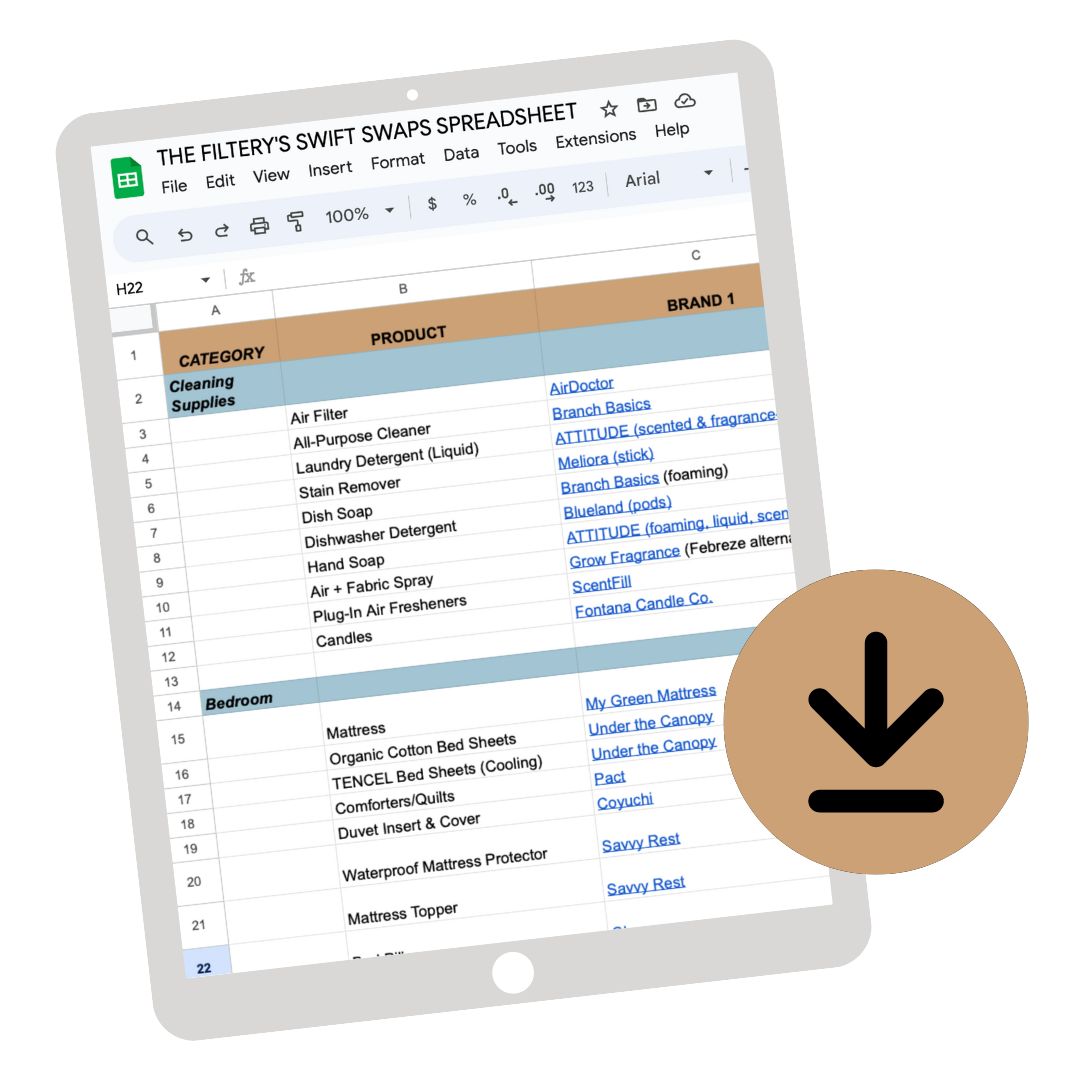

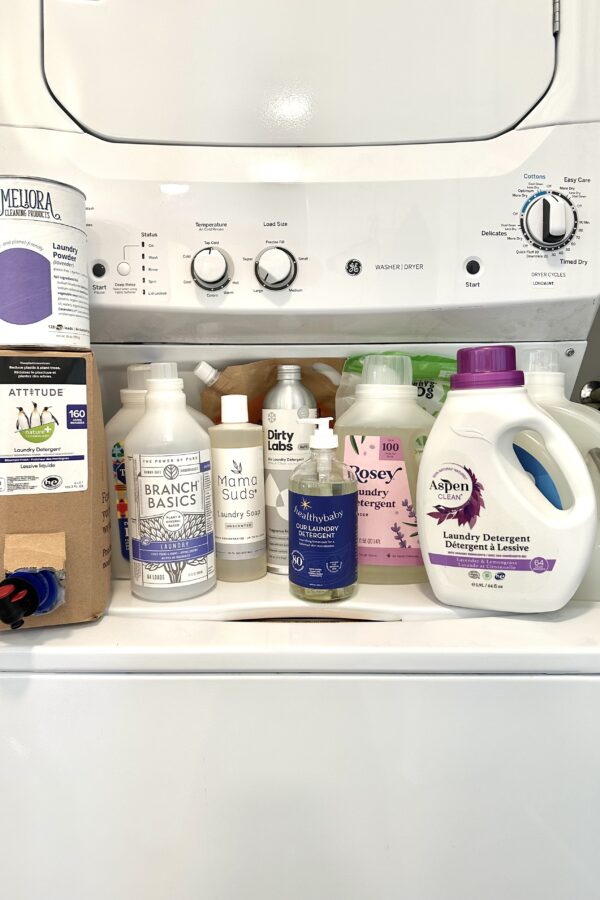
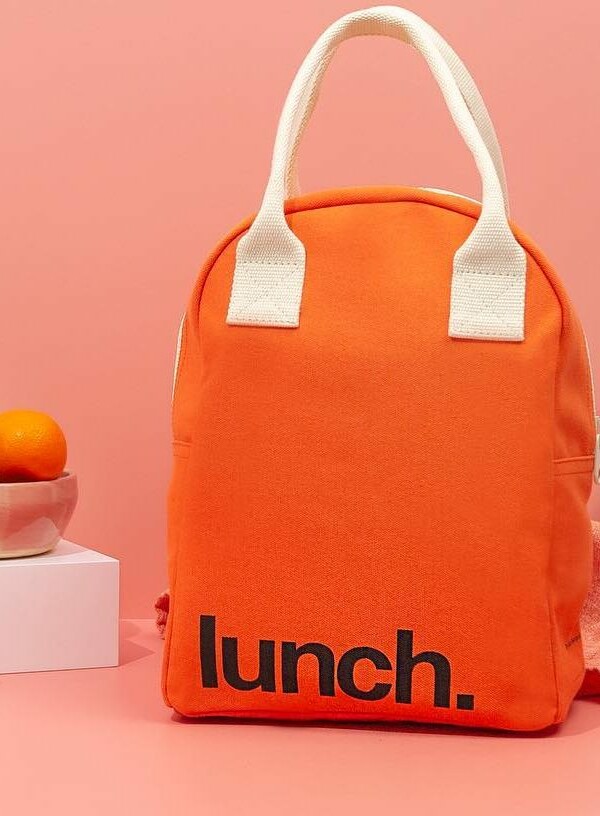
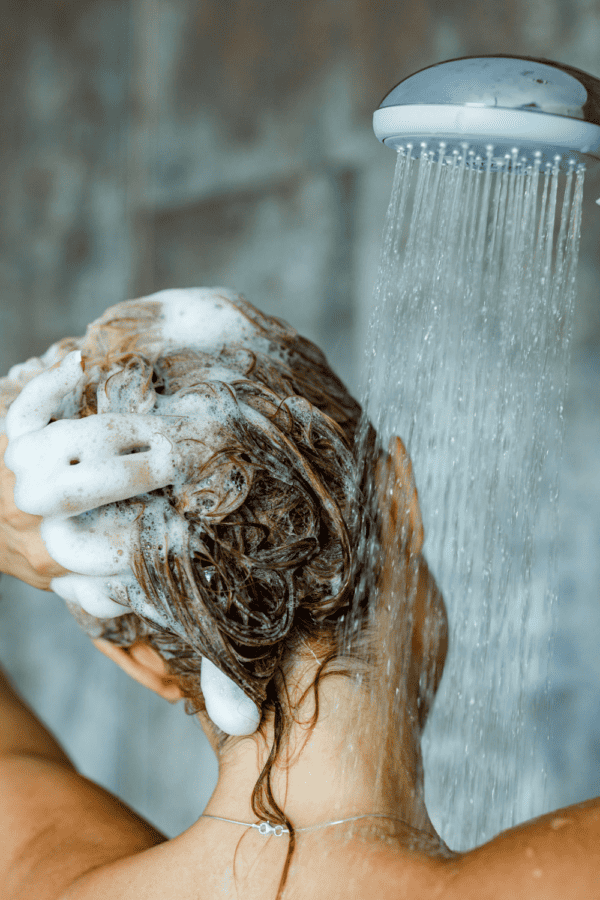
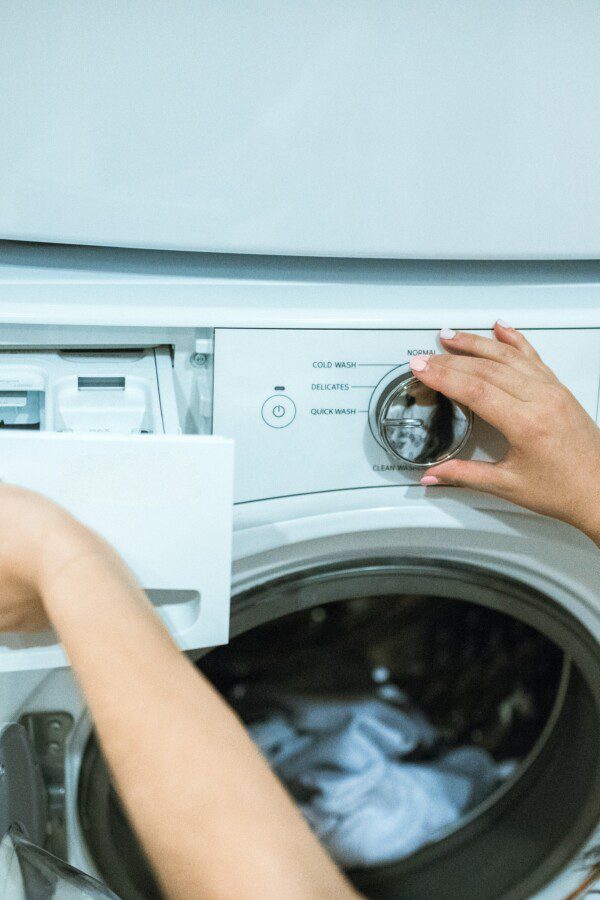
So grateful for your research! I’m diving into the brands you mentioned. So important! Thank you for what you do. Returning my cal pal tomorrow.
I enjoyed reading your research on luggage and prop65. I did have a question about Monos. Since it is a Canadian Co. why would prop65 be part of their agenda.
Great question! Essentially any brand that sells TO California residents (even if they’re not based there) is supposed to comply with Prop65.
What are your thoughts on Steamline luggage?
https://steamlineluggage.com/
They were recommended by another blogger but I can’t find any info on their site re: materials. Thanks in advance!
Hi Ana,
First of all, it’s beautiful! I haven’t looked into this brand before just now, but I found a full post about their materials here: https://steamlineluggage.com/blogs/news/materials-and-leather-guide. It looks like they use a variety of different materials, so it depends on which product you get. Things like flax/linen and rattan are usually going to be a more natural and healthier choice (but may not be as durable in the long-term). Leather is natural too of course, but it’s usually tanned using heavy metals, which is not ideal. I’m not seeing anything about Prop 65, but it looks like this is a European brand, which is usually a good sign. (The EU’s chemical policies are far from perfect, but they are some of the most strict in the world.) All that to say… Considering that there is no “perfect” option for non-toxic luggage, my initial opinion is that Steamline is a pretty good option. 🙂 I hope that helps!
Thanks so much for all your research and kindly sharing with others.
What do you know about Travel Pro Max-lite 5.
I am having trouble reaching the company. I bought 2 pieces of their luggage- never used them-but notice 3 months later at the bottom of the paper tag (purchased on line so didn’t see the tag online) the proposition 65 warning about Cadmium. “This product can expose you to chemicals including Cadmium which is known to the state of CA to cause cancer and birth defects or other reproductive harm…”
What is your recommendation? I am trying to return the luggage.
Hi Sarah,
Hopefully you can get in touch with them and return the luggage if that’s what you want to do… But if you can’t do it or if it’s past the return window, then I wouldn’t worry TOO much about it. Even though cadmium is a toxic heavy metal, since you’re not going to be eating or drinking off of your suitcase, it’s probably not going to lead to that much exposure. Heavy metals are not VOCs, so it won’t vaporize into the air where you can breathe it in. So I wouldn’t stress too much over it!
Wow, thank you for doing all the tough research! I am a big fan of your work and will be using this website a lot in the future. I work in the medical device industry, and in general, polypropylene and nylon are usually the safest plastics, ABS third, and polycarb the most toxic for the hard plastics. But I don’t know how much PFAS leach out over time, just that polypro rarely test to be vey toxic. Also, PVC is really bad, and old stuff with PVC often contain lead as a cheap binder.
The European REACH legislation bans a number of hazardous substances, so it can be useful in your research. REACH is always getting tougher to pass.
One more! Reached out to State Bags customer service Re their kids suitcases. They said all of their luggage is PFAS free and confirmed the interior fabric is not tested with anything for waterproofing
And some additional correspondence with Monos:
— Thank you for being so interested in Monos.
For the interior, we opted to use a luxurious 350 denier fabric that has a silk-like feel but is also waterproof. In addition, it’s also anti-microbial, which keeps odours and germs out. Again, something you can’t see but it’s a small detail that is important when you have old clothes and shoes packed in!
On the exterior, we colour-coordinated the zippers and the outside rubber tubing which makes for a much cleaner look to the case. Away keeps the standard black for both parts with exposed stitching on the rubber tubes which is prone to wear and tear as it is exposed. We also truly refined our matte finish with small, subtle graining which looks smooth from far away. Away’s texture is much larger and very industrial, kind of like an unrefined sandpaper.
we are now Climate Neutral Certified (find out more here: https://www.climateneutral.org/), as well as 1% for the Planet, which means we pledge to donate 1% of our revenue to verified non-profit organizations dedicated to preserving and restoring our natural world. We always look to improve in this aspect and more, as our company grows. An example being the rubber tube that runs around the case where the zipper is; Away and most other companies use a cheap PVC plastic that is not compostable and will never be recyclable. We opted for a more expensive TPE material that is eco-friendly and easy to recycle. You can Google TPE vs. PVC to learn more.
Our products are designed at our studio in Vancouver, Canada and manufactured in China. We only partner with factories that share our standards and values on quality and materials, as well as clean, safe work environments that we would want for our own employees. We visit and collaborate with all our partners frequently to find ways we can keep making our products better and more sustainable.
—- Our luggage is made from German Makrolon polycarbonate, which is naturally water-resistant. We do not use any of the said chemicals. The interior lining of the luggage is not waterproof, though.
Polycarbonate does indeed have BPA as a key building block, and it’s actually integral to giving polycarbonate its unique and most desirable physical properties.
—- We appreciate your interest in our products! No additional treatment is added to our Interior lining, and the materials used are just anti-microbial.
While we understand you are concerned about the chemicals applied to our products, we guarantee that Monos’ products use none of the materials listed on the Prop 65 Warning Label.
—- I then asked: I’d still be interested to hear *how* that fabric is anti-microbial…. unless it’s something like wool, which is inherently anti microbial, wouldn’t the fabric need to have some sort of chemical addition to make it so?
— The materials of our Interior are made from recycled bottles, the same as our vegan leather. The surface itself does not attract particles like linen.
— I responded: Thanks for getting back to me again.
The interior fabric is made from recycled bottles, doesn’t attract particles, but also is not treated with additional waterproofing/stain/anti bacterial agents… such as PFAS etc?
— No, there are no additional chemicals applied to our interior fabric.
We understand that you are very concerned about the chemicals used in the materials. Like our Vegan Leather, the interior is made from polyurethane, which at first glance seems very similar to urethane – but rest assured, it’s a very different material, and we will always design our products with your safety in mind!
Polyurethane is composed of organic units linked via urethane linkages and has low toxicity, while urethane is a colorless and odorless crystalline compound derived from ethyl ester with high toxicity. This toxicity has led to its listing on the Prop 65 warning. In short – polyurethane is a much safer, more natural option, which California has determined to be safe enough not to list on the Prop 65 warning label.
Please look at this Article for more information on the difference between polyurethane and urethane.
I saw Monos baggage but I am not really sure if the material they’re using is BPA free since it’s polycarbonate. It’s enough to search a little bit in Google to discover BPA is used for making polycarbonate material.
Hi Paul,
BPA is on the Prop 65 list and Monos doesn’t come with a Prop 65 label, so it’s probably safe to say it’s free from BPA. That doesn’t necessarily mean it’s free from ALL bisphenols since it could be made using a similar BPA replacement, but this is going to be the case for essentially any hard plastic suitcase. We weren’t able to find a “perfect” hard suitcase, but Monos is the best one we’ve been able to find so far, all things considered.
Thank you for this! I’d love to hear what Monos said – specifically regarding their Interior lining fabric. The website states that it is waterproof and anti bacterial…
Which to me suggests some kind of treatment?
Hi Kathryn,
Yes, actually all of the luggage brands we looked at have this anti-microbial fabric, so I don’t think it’s something that can be avoided at this point… (If you do find a luggage brand that doesn’t use it and is also Prop 65 compliant, please do let us know!) We are planning on writing more thoroughly on this anti-microbial fabric sometime in the near future!
Thank you so much for this post. We bought a Samsonite and it came with a Prop65 warning and we returned it right away. We already have the Terra Thread Duffle bag and love it and going to buy a Monos now. I just wanted to say that we always but an organic sheet in the suitcase and put our clothes on top of that and cover them with the sheet as well. At least you don’t have direct contact with the inside layer then.
I spoke with both Monos and Away recently when going down this same rabbit hole. Monos does use Microban to treat the inside fabric of their suitcases. Away does not have any antimicrobial treatment. Here is the response from Away when I asked about Prop65: “I checked with our team and based on the most recent testing of our luggage, the levels of any of the Prop 65 tested substances (which includes certain PFCS) were below the Prop 65 detection limit for each tested substance. The team also informed me that detection limits are extremely low (generally, parts per million or parts per billion) so any presence would be minimal.” I hate knowing there is Microban in Monos so I’m considering going with Away
Hi Sarah,
Thanks for letting us know that Away’s inner fabric is not made with antimicrobials – that is good to know! Unfortunately, when it comes to the Prop 65 issue, Away has given us quite a bit of run around. They essentially told us that some of their products come with a Prop 65 label, but didn’t say which ones. Another reader told us that after several follow-ups, their products do come with the Prop 65 label. Now it sounds like they’re telling you the opposite. So I’m not sure what to make of all of that, but we do appreciate you letting us know about your communications with them! I’ve also added some more info to the article to make it more clear that Monos uses the antimicrobial fabric.
Did they say anything specific about the waterproofing treatment used?
After quite a few emails with Paravel wanted to share some more info in case helpful to anyone else!
My main concern has been the interior fabric since that’s what comes into contact with my clothes etc. i asked about the internal fabric and below are some text quotes from customer service :
“ I know the interior is made of our Negative Nylon which is the same material used in our Fold-Up Bags and Backpacks! I am checking to see if this material is treated with any waterproofing for you- that is a great question!”
“Ok, so we do NOT use any waterproofing solutions on our Negative Nylon or anything similar”
I asked – “so the negative nylon itself is oekotex certified, and then thats it… nothing else is added during the manufacturing process?”
Customer service response: “correct”
Doing the good Lord’s work. Thank you!